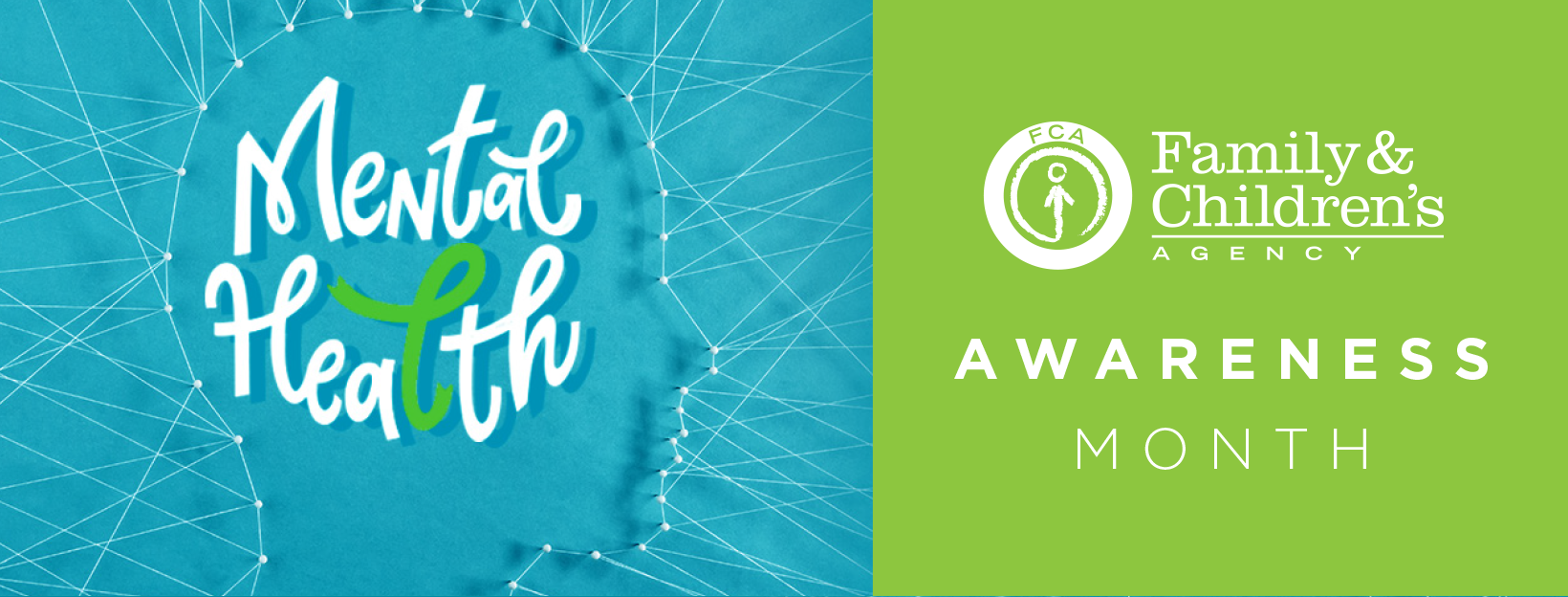
May is National Mental Health Month, and Jessica Vivenzio, Manager of FCA’s Project REWARD program, talks about the importance of connection with others in dealing with addiction issues. During the social distancing required to stop the spread of COVID-19, this is even more challenging.
For those who love someone struggling with addiction and mental health diagnoses, watching a person suffer through their addiction and attempts at recovery can be incredibly painful and often disheartening. Everyone hopes that a path to recovery will be smooth and without obstacles, but often that path is a journey spanning decades that will likely include as many setbacks as achievements. The author Johann Hari said, “the opposite of addiction isn’t sobriety. It’s connection.” Through my work at Family & Children’s Agency (FCA) as a social worker in our Project Reward program for women struggling with addiction, I have seen first-hand how connections can help clients heal.
Much of my work at FCA revolves around helping clients recognize healthy connections and guiding them toward setting appropriate boundaries with friends and family. In addition to connecting with others, they also must work to connect with themselves – building up their confidence and strength so they are comfortable setting those important boundaries, distinguishing what healthy support looks like, and making progress in their recovery.
It can seem daunting to try to maintain a connection to someone suffering from addiction, but it is crucial to meet that person where they are with love and empathy. Even putting those intentions into words can help – explaining to a loved one the patterns you notice and reminding them you will be there for them helps create a safe and nonjudgmental space for them to rely upon, and can significantly impact an individual’s decision to pursue recovery.
During the COVID-19 crisis, these connections are more difficult to make and more important to maintain than ever. While the stress, uncertainty, and disruption of routine impacts everyone, for those whose coping mechanisms have historically been alcohol or drug use the results can be devastating. Isolation is one of the most significant triggers for those dealing with addiction, and the lack of in-person group meetings, the connections to coworkers, and the ability to see friends and family may make relapse more likely.
In an effort to maintain these connections during this challenging time, FCA has increased contact with our clients, speaking every day to those in our highest level of care and checking in multiple times each week for those in our early intervention program. We are working with clients to practice grounding exercises and mindfulness to help calm anxieties, and we encourage family and friends of people struggling with addiction to reach out – call, video chat, and check in frequently.
Although it can be difficult to watch a loved one deal with addiction, focusing on progress and successes can be helpful. For me, knowing that something I did or said had an impact on a client and helped them make better choices for themselves is what keeps me in this work. If I help one person feel important, or one client recognize their actual self-worth instead of what they may have been told or made to believe, that’s enough for me. I try to be as open and honest as possible with my clients and help them make the decision as to whether their use of drugs or alcohol to cope is the most effective. If not, we work on the development of safer and healthier decision making skills, coping skills, and behavioral changes.
At FCA, connection is the foundation of the strengths-based approach we take as we encourage clients to make well-informed decisions about their own therapy and treatment while we are there to support them along the way. Knowing that those first few steps to recovery will never have to be taken alone can make all the difference.
If you are looking to begin your journey to recovery in a safe, gender-specific program, Project REWARD is accepting new clients. For more information, click here or call 203-523-5793.